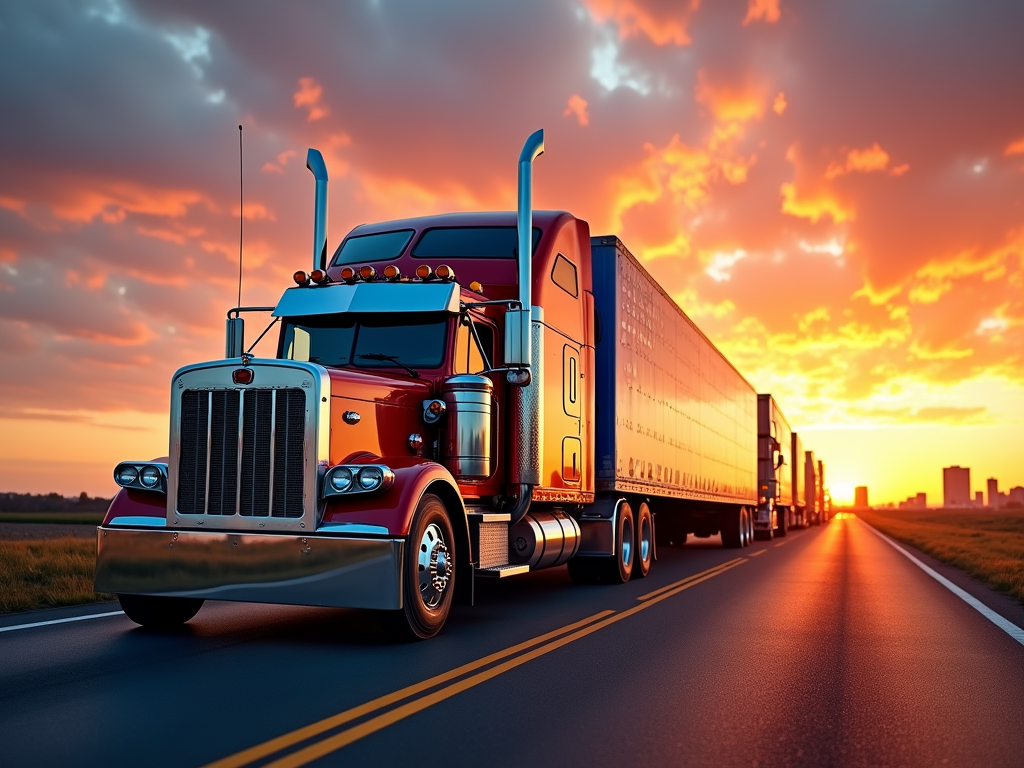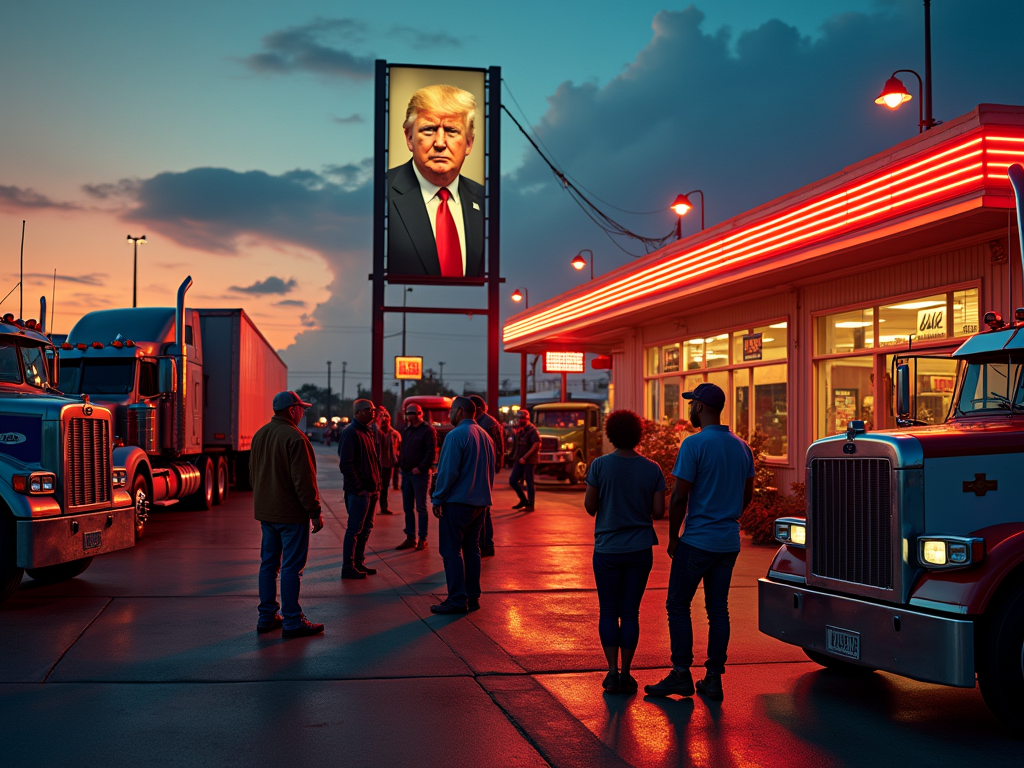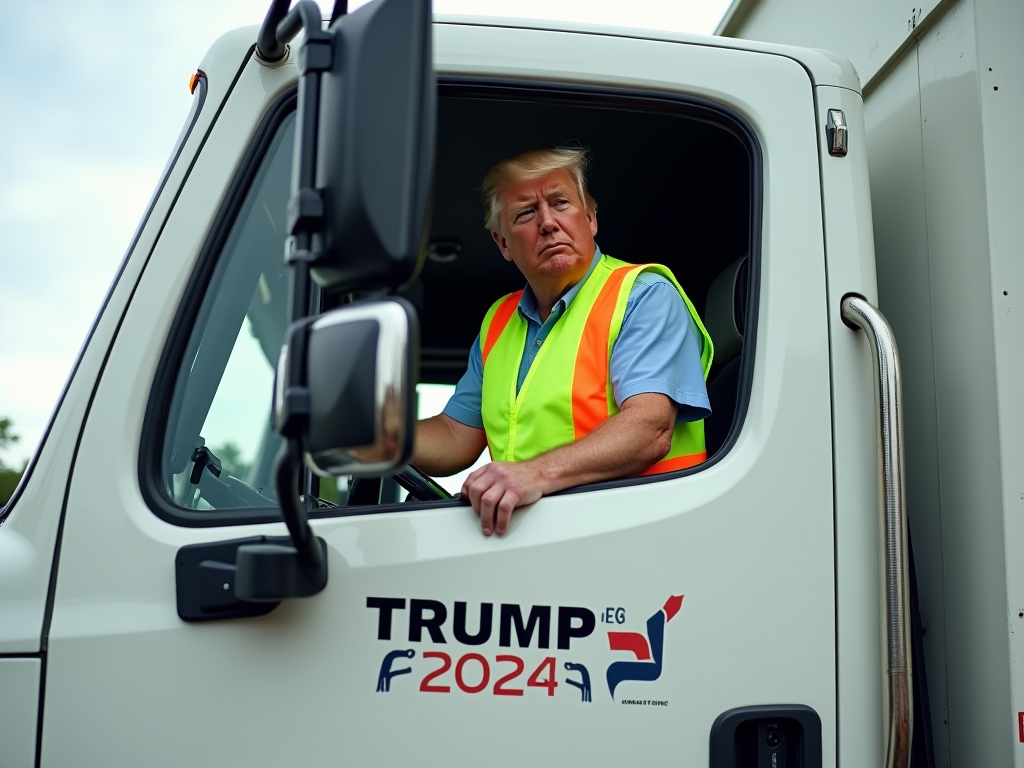The Many Positive Policies

As you consider Is Trump Good For Trucking, you have to consider the impact of Trump’s policies on the trucking industry, you might find yourself grappling with a blend of benefits and drawbacks. On one hand, deregulation has simplified many operations, while on the other, tariffs have raised costs and complicated supply chains. Tax cuts have improved cash flow for companies, yet ongoing discussions about worker classification could alter the workforce landscape considerably. What does all this mean for the future of trucking? The answers might not be as straightforward as you’d expect.
Key Takeaways
- Tariffs increase operational costs for trucking companies, potentially suppressing demand for imported goods and impacting profitability.
- Deregulation initiatives can enhance operational efficiency, allowing trucking companies to save significantly and optimize routes.
- Tax reforms, including lower corporate rates and immediate expensing, provide financial relief and opportunities for reinvestment in the trucking industry.
- The debate over contractor versus employee classification may impact driver flexibility and compensation, affecting workforce dynamics in trucking.
- Overall, Trump’s policies present both challenges and opportunities, necessitating careful evaluation for strategic decision-making in the trucking sector.
5 Ways President Trump Affects Trucking
When analyzing how President Trump affects trucking, it’s crucial to take into account the industry’s diverse stakeholders, including fleet owners, independent drivers, and logistics companies.
Trump’s policies, such as imposing tariffs on imports, can disrupt supply chains and increase costs for fleet owners. For independent drivers, fluctuating oil prices tied to his administration’s energy policies directly impact their profit margins.
Additionally, his push for reduced regulations may simplify compliance but could also jeopardize safety standards. On the tax front, potential cuts could provide short-term relief but might lead to long-term fiscal challenges for state infrastructure funding.
Finally, the ongoing debate about the classification of independent contractors versus employees raises significant concerns for many drivers seeking autonomy in their work.
Best For: Fleet owners, independent drivers, and logistics companies looking to navigate the impact of Trump’s policies on the trucking industry.
Pros:
- Tariffs may encourage domestic manufacturing, potentially benefiting local suppliers.
- Reduced regulation can lead to lower compliance costs and increased operational flexibility.
- Tax cuts may provide immediate financial relief, allowing for reinvestment in business operations.
Cons:
- Tariffs can disrupt supply chains, leading to increased costs and delays.
- Fluctuating oil prices can create uncertainty in profit margins for independent drivers.
- Changes in classification of independent contractors could limit drivers’ autonomy and increase operational burdens.
Reduced Regulation

As tariffs reshape the trucking landscape, reduced regulation under President Trump also plays a pivotal role in the industry’s evolution. The administration’s push to streamline regulations aims to enhance efficiency and reduce operational costs for trucking companies.
For instance, deregulation efforts have simplified compliance requirements, allowing you to allocate resources more effectively. According to the American Trucking Associations, these changes could result in significant savings, estimated at billions annually across the industry.
Moreover, the Federal Motor Carrier Safety Administration (FMCSA) has made strides in easing restrictions on hours of service. This flexibility allows you to optimize routes and schedules, ultimately improving delivery times. Lowering the regulatory burden also encourages new entrants into the market, fostering competition that can lead to better service and innovation.
However, it’s crucial to evaluate the balance between deregulation and safety. While reduced regulation can stimulate growth, it raises concerns about potential impacts on driver welfare and road safety.
Analyzing these shifts, you can better understand how reduced regulation under Trump’s administration influences both your operational strategies and the broader trucking landscape.
Tariffs

In the domain of trucking, tariffs imposed by President Trump have significant implications for the industry. These tariffs can affect freight rates, operational costs, and the overall market dynamics. You might find it essential to analyze how these changes ripple through your business and the wider economy.
| Impact Area | Description |
|---|---|
| Freight Costs | Tariffs increase the cost of imported goods, leading to higher freight charges as carriers pass on expenses. |
| Market Demand | Elevated costs can suppress demand for certain goods, impacting shipping volumes and profitability. |
| Supply Chain Disruption | Tariffs can disrupt established supply chains, requiring you to adapt logistics strategies. |
Understanding the nuances of tariffs helps you navigate the challenges and opportunities they present. While some trucking companies may struggle with increased expenses, others may benefit from reduced competition on certain routes or services. By analyzing your operational strategies and market position, you can better respond to these tariff-induced shifts, positioning your business for potential growth despite the hurdles.
Independent Contractor vs. Employee Attack

The ongoing debate over the classification of truck drivers as independent contractors versus employees has significant implications for the trucking industry.
As a truck driver, your status affects your earnings, benefits, and working conditions. Independent contractors often enjoy flexibility and autonomy, but they also bear the burden of expenses like fuel and maintenance. In contrast, employees typically receive benefits such as health insurance and paid time off, but they may face restrictions on their schedules and routes.
Data from various studies show that many truck drivers prefer independent contractor status, valuing the freedom it provides.
However, recent regulatory shifts suggest a move towards stricter employee classification, citing worker protections and stability. This shift raises concerns about potential pay reductions and limited job opportunities for drivers who thrive on the independence of contracting.
As the trucking industry navigates these changes, it’s crucial to evaluate how different classifications impact not just individual livelihoods but also the broader economy.
A balanced approach that respects drivers’ choices while ensuring fair labor practices could lead to a more sustainable and equitable industry for all stakeholders involved. Your voice matters in this ongoing conversation about the future of trucking.
Taxes
Tax policies under President Trump have significantly impacted the trucking industry, offering opportunities for financial relief and growth. The Tax Cuts and Jobs Act, enacted in 2017, lowered corporate tax rates and introduced various deductions that can benefit trucking companies directly. For truckers operating as independent businesses, these changes can lead to increased cash flow and investment potential.
Here’s a breakdown of some key tax provisions relevant to trucking:
| Tax Provision | Impact on Trucking Industry |
|---|---|
| Lower Corporate Tax Rate | Increases profitability for companies |
| Bonus Depreciation | Allows immediate expensing of equipment |
| Fuel Tax Deductions | Reduces effective fuel costs for operators |
Conclusion
In the ever-shifting landscape of the trucking industry, Trump’s policies act like a double-edged sword. On one side, tariffs weigh heavily, increasing costs and complicating supply chains. On the other, deregulation and tax reforms open doors for potential growth and investment. As the debate over worker classification lingers, the industry stands at a crossroads. The choices made now will shape not just profits, but the very fabric of the workforce, echoing far beyond the open road.










